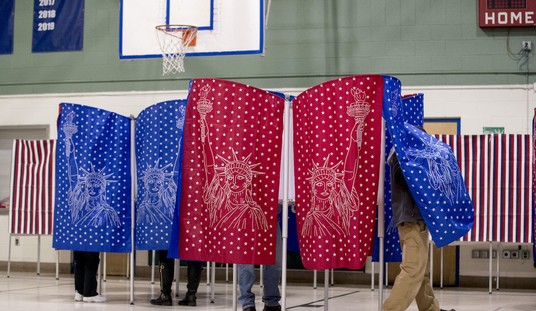Byron York asked Rush Limbaugh to respond to the President’s remark that Republican politicians ought to quit listening to him and get on with crafting the stimulus plan. Readers can read Limbaugh’s response themselves. Both Limbaugh and Obama infer that political motives are shaping the policy debate. Obama by accusing Republican politicians of being cowed by the Limbaugh crowd, and Rush by suggesting that the huge expenditures carry the danger of creating a permanently expanded — hence Democratic — government.
But at least Rush wants the focus returned to where it should be: the stimulus plan itself. And this is important, because much of the Republican Party, with the exception of people like Fred Thompson, seems to have accepted the assumption that we should spend our way out of the current economic difficulties. And even among the spending advocates there is a terrible fuzziness about how we should do it. In Rush Limbaugh’s response, his plea to refocus on the issues is mixed up with a number of themes, so I’ve tried to filter out that particular signal by highlighting the relevant parts in italics.
There are two things going on here. One prong of the Great Unifier’s plan is to isolate elected Republicans from their voters and supporters by making the argument about me and not about his plan. He is hoping that these Republicans will also publicly denounce me and thus marginalize me. And who knows? Are ideological and philosophical ties enough to keep the GOP loyal to their voters? Meanwhile, the effort to foist all blame for this mess on the private sector continues unabated when most of the blame for this current debacle can be laid at the feet of the Congress and a couple of former presidents. …
To make the argument about me instead of his plan makes sense from his perspective. Obama’s plan would buy votes for the Democrat Party, in the same way FDR’s New Deal established majority power for 50 years of Democrat rule, and it would also simultaneously seriously damage any hope of future tax cuts. It would allow a majority of American voters to guarantee no taxes for themselves going forward. It would burden the private sector and put the public sector in permanent and firm control of the economy. Put simply, I believe his stimulus is aimed at re-establishing “eternal” power for the Democrat Party rather than stimulating the economy because anyone with a brain knows this is NOT how you stimulate the economy.
Now let’s focus on the stimulus package itself. Look at the language of a stimulus package, cited below, which was aimed at reversing the effects of a slowing economy, deal with the effects of the housing bubble, infuse liquidity into the banking system, “put money into the hands of people who will spend most of it when they get it”. And then look at the date. It’s not the package which is going to save us all in 2009, it’s the one that was going to save us in 2008. We know how that worked out.
January 29, 2008 —
Mr. Chairman and Members of the Committee:I am happy to be here this morning to urge Congress to enact a stimulus package quickly. In brief, I believe that:
* A well-designed stimulus package is needed now as an insurance policy to reduce the risk of recession or mitigate its severity if it occurs;
* The compromise worked out by the President and Speaker Pelosi is well-designed to stimulate spending quickly, because it focuses on low- and moderate income people, and should be enacted as soon as possible;
* The Congress should resist the temptation to delay the package by adding other elements, however worthy, at this time;
* Risks posed by the package—that it will aggravate inflation or add to the long-run deficit—are worth taking to help stabilize the economy in the months ahead.
This text of the 2008 stimulus package, taken testimony cited by the Brookings Institution website, referred to the $168 Billion Bush stimulus package of that year, about which a Forbes Magazine commentator wrote at the time:
Congress and the White House recently settled on an economic stimulus package with unusual speed, pushing the throttle to pull the economy out of a nosedive. Is this just election-year grandstanding, or does economic stimulus really work? And if it can work, what works best?
While some experts argue that priming the economy now is unnecessary, ill-timed or even counter-productive, those who support the concept applaud the design of the recently approved $168 billion package, centered on rebates of $600 to $1,200 for more than 130 million households. “They have moved remarkably quickly, so maybe this time it will, in fact, be well-timed,” says Nicholas S. Souleles, finance professor at Wharton. Souleles conducted a study titled, “Household Expenditure and the Income Tax Rebates of 2001,” that found a 2001 stimulus package did indeed help the economy recover from recession.
Now we are told that another package, an order of magnitude greater, but of similar philosophy is necessary to save us. Yet another deal worked out between the President and Speaker Pelosi. One which may contain strong income redistributive elements and major tax implications. Will it save us?
Maybe it will, maybe it won’t. Maybe it is a case of “the more things change, the more they remain the same”? Or perhaps things are different this time? I don’t know the answer, but it seems reasonable to focus on the question. Whatever one may think of Rush Limbaugh he is definitely correct to assert that Barack Obama should focus more on the substance of the stimulus plan than on whether Republican politicians going in are listening to a talk radio host.










Join the conversation as a VIP Member